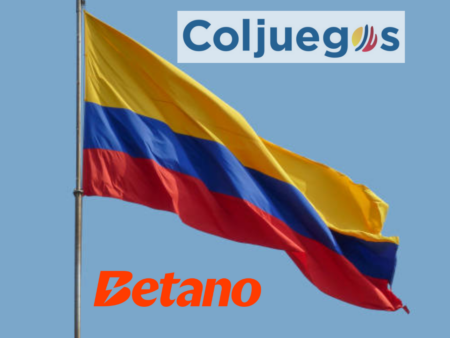Playtech is currently at the center of a growing controversy following the announcement of a €100 million bonus scheme for its senior executives, including its CEO Mor Weizer. This proposal, which has drawn sharp criticism from some shareholders, was made in conjunction with the company’s recent €2.3 billion sale of its Italian sports betting and gaming division, Snaitech, to Flutter Entertainment.
The bonus scheme has raised concerns about its timing and structure, with many investors questioning the rationale behind such substantial payouts, particularly in the absence of clearly defined performance targets. As the issue continues to unfold, it has become a focal point of tension between the company’s leadership and its shareholders.
Details of the Proposed Bonus Scheme
The controversial bonus plan, announced on the same day as the sale of Snaitech, would see Weizer as the largest beneficiary. However, Playtech has not disclosed the exact amount of his potential payout. According to the proposal, the bonus pool is tied to the recent sale and would reward the top executives with a €100 million payout, a significant sum that has stirred discontent among certain investors.
In addition to the immediate bonuses, the executives stand to gain 10% of the proceeds from any future disposals made by Playtech, a clause that has further alarmed shareholders. This additional provision means that if Playtech decides to sell off any more assets, the executives would be entitled to a percentage of the sale proceeds, creating the potential for even larger payouts down the road.
Meanwhile, a separate €34 million bonus pool has been allocated to the management team of Snaitech, with its CEO, Fabio Schiavolin, expected to receive the largest portion of this payout. While the exact amount set aside for Schiavolin has not been disclosed, it is believed to be a significant sum, drawing even more attention to the bonus issue.
Shareholder Reactions and Criticisms
The reaction from Playtech’s shareholders has been far from unanimous. Some investors have voiced their dissatisfaction with the bonus plan, particularly pointing out the lack of performance criteria attached to these payments. Without clear performance targets, many feel that the bonuses are unjustified, especially considering the substantial amounts involved.
Among the most vocal critics is Jeremy Raper, a Playtech investor, who described the bonus scheme as “the most egregious case of shareholder value expropriation in the history of UK public markets.” Raper’s strong language reflects the depth of frustration felt by many investors who see the proposal as a way for executives to enrich themselves without delivering tangible value to the company’s broader shareholder base.
Similarly, Peter Smith of Palm Harbour Capital criticized the bonuses, stating, “This payment appears to have come simply because there is a large cash inflow and for no other reason.” Smith’s argument highlights a key concern: that the bonuses are being awarded not based on merit or performance, but simply due to the inflow of cash from the Snaitech sale.
Support for the Bonus Plan
Despite the backlash, Playtech has secured the backing of shareholders representing 34.4% of the company’s stock, who have committed to voting in favor of the bonus plan. This level of support suggests that there are significant stakeholders who believe the bonuses are justified, possibly as a reward for successfully negotiating the Snaitech sale and navigating Playtech through a competitive and evolving market.
The support from these shareholders could be linked to Playtech’s recent strong financial performance, bolstered by the €2.3 billion deal with Flutter Entertainment. The Snaitech sale is viewed as a major win for Playtech, providing the company with a substantial influx of capital, which could be reinvested to drive future growth and innovation.
Playtech has also positioned itself as a leader in the online gambling technology space, with a global footprint that spans Europe, Latin America, and the rapidly growing North American market. Its ability to adapt to changing regulatory landscapes and continue expanding its offerings has likely influenced some investors to back the bonus scheme as a reward for successful leadership during these challenging times.
Future Implications of the Bonus Scheme
The proposed bonus scheme raises important questions about executive compensation and corporate governance. For many shareholders, the timing of the bonuses and the absence of performance criteria have created the perception that the plan is more about rewarding individuals than aligning executive incentives with shareholder value.
Should the bonus plan be approved in the upcoming shareholder vote, it could set a precedent for future compensation packages at Playtech and possibly other companies in the iGaming and technology sectors. It may also prompt a broader discussion about the role of shareholders in approving executive pay, particularly when substantial payouts are tied to events like company sales or asset disposals rather than ongoing performance.
If, however, the plan is rejected, it could force Playtech’s board to revisit the structure of the bonuses, potentially introducing performance-based targets or scaling down the size of the payouts to address shareholder concerns.
The Role of Snaitech and Its CEO in the Bonus Scheme
While much of the attention has been focused on Mor Weizer and Playtech’s senior leadership, the €34 million bonus pool designated for Snaitech’s management also deserves scrutiny. Snaitech’s CEO, Fabio Schiavolin, stands to receive the largest share of this pool, which has raised additional questions about the distribution of rewards within the company.
Snaitech, which was acquired by Playtech in 2018, has been a key driver of the company’s success in the Italian sports betting market. The decision to allocate a significant bonus to its management team could be seen as a recognition of their role in successfully growing the business and securing its sale to Flutter Entertainment.
Nevertheless, the scale of these bonuses, like those earmarked for Playtech’s executives, has caused concern among shareholders, many of whom feel that the payouts are disproportionate to the contributions made by the management teams.
Conclusion: Playtech and Its Shareholders
The upcoming vote on the €100 million bonus scheme will be a defining moment for Playtech. As shareholders prepare to cast their ballots, the company faces a critical decision. Regardless of the outcome, this episode has highlighted the ongoing debate over executive compensation in public companies, particularly in sectors like iGaming where success is often tied to large acquisitions and asset sales. The results of the vote could set the tone for future discussions about how companies should balance rewarding leadership with protecting shareholder interests.
FAQs About Playtech’s €100 Million Bonus Scheme Controversy
1. What is the controversy surrounding Playtech’s bonus scheme?
Playtech has faced criticism over a proposed €100 million bonus scheme for its senior executives, including CEO Mor Weizer. The bonus is tied to the recent €2.3 billion sale of its Italian sports betting division, Snaitech, to Flutter Entertainment. Shareholders have raised concerns about the timing and structure of the payouts, particularly the lack of clear performance targets.
2. Who benefits the most from the bonus scheme?
CEO Mor Weizer stands to be the largest beneficiary of the €100 million bonus pool, though the exact amount of his payout has not been disclosed. In addition, executives will receive 10% of any future asset sales by Playtech, potentially increasing their compensation further.
3. Why are shareholders critical of the bonus plan?
Many shareholders are concerned that the bonus scheme is not based on performance criteria, meaning executives could receive substantial payouts without achieving measurable business goals. Some investors view the plan as unjustified, particularly given the large sums involved.
4. What are the reactions from key shareholders?
Jeremy Raper, a Playtech investor, called the bonus scheme “the most egregious case of shareholder value expropriation in the history of UK public markets.” Similarly, Peter Smith of Palm Harbour Capital criticized the payments, arguing they are based on the sale’s cash inflow rather than merit.
5. Is there any support for the bonus plan?
Yes, shareholders representing 34.4% of Playtech’s stock have pledged to vote in favor of the bonus scheme. Supporters likely view the payouts as a reward for successful leadership, particularly in finalizing the Snaitech sale and maintaining Playtech’s strong financial performance.
6. How does Snaitech factor into the controversy?
A separate €34 million bonus pool has been allocated to Snaitech’s management team, with CEO Fabio Schiavolin expected to receive the largest share. This has raised additional concerns among shareholders regarding the distribution of rewards within the company.
7. What are the potential future implications of this bonus scheme?
If approved, the bonus scheme could set a precedent for future executive compensation at Playtech and in the broader iGaming industry. It might also spark discussions on corporate governance and the role of shareholders in approving executive pay.


















